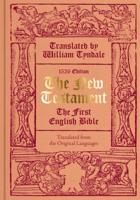Publisher's Synopsis
Excerpt from The Biblical Repository and Classical Review, 1845
From the time when Tullus in?icted summary vengeance upon the traitor Mettus, until Cato perished in a mean Afri can city, by his own hand, the striking characteristic of the nation was the enactment of the severest laws and the most iigid submission to them. It is this feature which claims our particular attention, since it was this which rendered Roman legions invincible, Home the empress of nations, and inspired the hope that now the element of national immortality had been discovered. In all the outlines of this system there is nothing so beautiful and fascinating as in Grecian democracy. Beauty even in cold marble excites admiration and delight. But in this second creation, produced by the ingenious statu cry from the rough materials of society, beauty is not the pre dominating characteristic. It is power, the power of law, which clothes its mighty limbs with brawn and muscle, placing in its hand a rod terrible to the transgremor, and freezing its very countenance into the relentlessness of justice. This characteristic is observable throughout the whole Roman pol ity. The child was subjected to the arbitrary power of the parent, for life and death, and the parent's decision was final the sceptred ruler, the sacred priest, the idolized general, not being exempted. In this severe school the first stern lessons of implicit obedience to law were branded deeply into the Roman's heart. The in?uence of that one lesson was felt throughout the state, and perhaps contributed more than any single cause to the accumulated power of the eternal city. In this one particular Rome may justly share with Sparta what the historian terms her magnificent epithet, Ampaoc'p pooroc, tamer of men, since most truly this patriarchal despo tism crushed the passions of childhood into submisson, and dis eipliued a nation of men obedient to law. To such an extent in Human Govern-rent.
About the Publisher
Forgotten Books publishes hundreds of thousands of rare and classic books. Find more at www.forgottenbooks.com
This book is a reproduction of an important historical work. Forgotten Books uses state-of-the-art technology to digitally reconstruct the work, preserving the original format whilst repairing imperfections present in the aged copy. In rare cases, an imperfection in the original, such as a blemish or missing page, may be replicated in our edition. We do, however, repair the vast majority of imperfections successfully; any imperfections that remain are intentionally left to preserve the state of such historical works.










